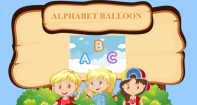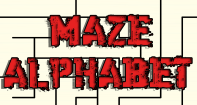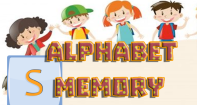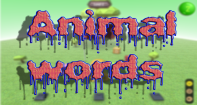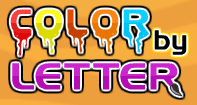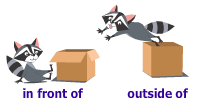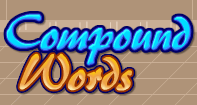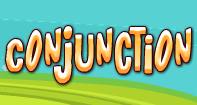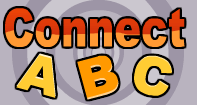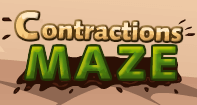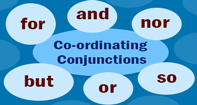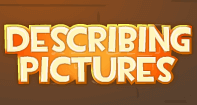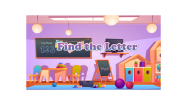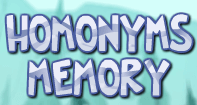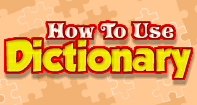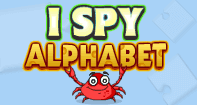Login as parent/teacher to assign this.
Reading Games
Reading Games for Kids
Every child loves to play games, so including educational endeavors as you play can build a strong foundation for future learning. Reading games especially are automatically incorporated into children’s sing-song chants and toys, from “The Alphabet Song” to rhyming games with animal sounds. Word games can also help children from a young age be ready to start reading.
In this 21st-century world, reading games online can be the best way to encourage your children to advance in early reading skills while enjoying interactive games. Finding the best games can be tricky, though, so following some basic tips will help you to maximize the educational potential for your child.
In this 21st-century world, reading games online can be the best way to encourage your children to advance in early reading skills while enjoying interactive games. Finding the best games can be tricky, though, so following some basic tips will help you to maximize the educational potential for your child.
Using Reading Games to Motivate Learning
Before you even introduce games, begin to make reading fun with songs that incorporate letters and phonics, or letter sounds. Then move on to showing kids that they are pre-reading by pointing out signs of restaurants, brands, and commonplace things and ask them what they are. When they respond correctly, say, “I didn’t know you could read!” They will learn to associate context cues with words and memorize those patterns. This means that fun reading games will be something they beg to play.
Then you can move onto sight words and letter blends and combinations. Start small, and be sure they know the different vowel sounds each can make. Other fun ways to involve reading is to ask them to read the instructions while you bake, point out one word they are “in charge of” while you read books together, and see if they can point out words they know as you go about your day. This lets them take ownership of their learning and tickles them that they are READING!
Then you can move onto sight words and letter blends and combinations. Start small, and be sure they know the different vowel sounds each can make. Other fun ways to involve reading is to ask them to read the instructions while you bake, point out one word they are “in charge of” while you read books together, and see if they can point out words they know as you go about your day. This lets them take ownership of their learning and tickles them that they are READING!
What types of games are best?
Developmental Level
When looking for reading games for kids, you need to carefully consider your child’s developmental level and their digital skills. Do they have the eye-hand coordination to do a more complex game, or will they be better suited to a simple touch-and-drag game?
Sometimes their age or grade level won’t match what is tagged with the game, so be sure to give them a chance if they want to try something below or above. Remember that the goal is to encourage fun with reading, so instilling that love is paramount.
Sometimes their age or grade level won’t match what is tagged with the game, so be sure to give them a chance if they want to try something below or above. Remember that the goal is to encourage fun with reading, so instilling that love is paramount.
Proper Content
Proper content is also essential for young readers. Look for games that incorporate rhyming words and matching skills as well as sight words. You also want to look for games that work with phonics, and should include sound along with them so that the kids can both see the word and hear the sounds. When you get to larger words, decoding games are best, whether they are missing letters, letter-by-letter, scrambled words, or fill-in-the-blank sentences.
Graphics & Sound
Finally, the graphics and sound are key. If the characters and colors aren’t inviting, it won’t draw them in. Kids love bright colors, funny characters - especially animals - and sounds that match. Even if there is music in the background, there should be proper pronunciation of the words in natural human speech, not an electronic facsimile. Some free reading games distract more than help. Be sure to look for ones that reinforce key concepts.
No matter what, continue to encourage them in their game play and praise them for a job well done. Then note what they’re working on and be sure to incorporate it in other areas of your life. Learning to read with games can help to grow confidence and self-efficacy. These reading strategies will ensure your child will find learning to read an easier process.
No matter what, continue to encourage them in their game play and praise them for a job well done. Then note what they’re working on and be sure to incorporate it in other areas of your life. Learning to read with games can help to grow confidence and self-efficacy. These reading strategies will ensure your child will find learning to read an easier process.
How Can Turtle Diary Reading Games Help?
Turtle Diary games are specially constructed to help your child with a scaffolded approach to learning and repetition of important skills without getting boring. You’ll notice a number of games that have the same learning theme, but with different game-play and a variety of graphics. Kids will get bored quickly with the same old games, but by switching up the packaging, they will practice the same concepts in a shiny new way.
All developmental levels are met on Turtle Diary, so your child can move around from game to game knowing that they’re in the right spot for their grade or age. And there’s something for every kid! Our free online reading games can help to support your lesson plans even if you’re an educator. You’re sure to find something to interest your child with all of the various themes on Turtle Diary.
All developmental levels are met on Turtle Diary, so your child can move around from game to game knowing that they’re in the right spot for their grade or age. And there’s something for every kid! Our free online reading games can help to support your lesson plans even if you’re an educator. You’re sure to find something to interest your child with all of the various themes on Turtle Diary.
Our Educational Resources
Math Games
- Addition
- Area and Perimeter
- Decimals
- Division
- Fractions
- Shapes
- Geometry
- Multiplication
- Number
- Roman Numerals
- Statistics
- Subtraction
- Time
- Units of Measurement


